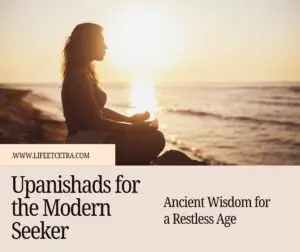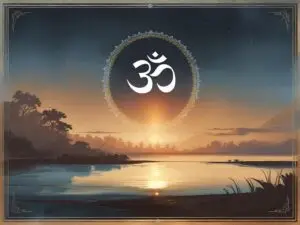
The great Indologist, Mahamahopadhyaya Biswanarayan Shastri was a Sanskrit scholar par excellence, a creative author, a dedicated educationist, a devoted social worker of commendable ability and a responsible parliamentarian from Assam. This multi-talented award-winning novelist was born at Narayanpur in Upper Assam on 11th August 1918. He inherited the rich cultural heritage of his father Benikanta Goswami, who was a Sanskrit scholar and Satradhikar, the head of a Vaishnava monastery.
Shastri was fortunate to learn Sanskrit traditionally from his father and was so brilliant that before completing his primary education, he was able to learn many portions of Amarakosa (written by ancient Sanskrit scholar Amarasingha). Shastri got primary education in traditional Sanskrit tola in Bihpuria. Later he studied Sanskrit grammar, literature, and Indian philosophy at Nalbari Sanskrit College under the guidance of the late Sanskrit scholar Manoranjan Sastri. He obtained several titles such as Sahitya Shastri, Vyakarana Shastri, Mimamsa Shastri, Kavyatirtha, and Darsanacarya.
During his student life, he even joined the Quit India movement and was jailed for a short period. He passed Matriculation, Intermediate, B.A. and M.A. as a private student from the Universities of Calcutta, Gauhati and then Benaras Hindu University with flying colours. He was awarded the D.Litt. degree by Burdwan University for his thesis on ‘The Concept and Development of Samavaya in Nyayavaisesika Philosophy. Shastri started his service as an Assistant Teacher in a High School and then as the Principal of North Lakhimpur College for some time.
He was chosen as a Special Officer to the Govt, of Assam and Secretary to the Publication Board of Assam in 1958. His career as a Political and social worker started when he assumed the post of the General Secretary of the North Lakhimpur District Congress Committee. He was a member of, the Assam Pradesh Congress Committee and All India Congress for a very long period. He was elected to the Lok Sabha in 1967 and again in 1977.
He was the first Member of Parliament to deliver his speech in Sanskrit. Shastri was nominated twice to the Sahitya Akademi and served as the Member of its Executive and convenor of the Assamese Advisory Board. Biswanarayan Shastri started his career as a writer in 1939 through Awahan, a monthly magazine in Assamese. He has composed, compiled, edited, and written a good number of books in Assamese, Sanskrit and English including textbooks, translations, philosophical treatises, and fiction.
The Assamese and Sanskrit books edited by Shastri are Parijataharana Nata of Sri Sankaradeva (1962), Yoginitantra (1982), Kamakhyatantra (1990), Kalikapurana and Tirthakaumudi of Pitambara Siddhanta Vagisha (1998). He had translated some parts of the original Kathasaritsagar of Somadeva and Viswanatha Kaviraja’s Sahitya Darpana into Assamese, which fulfilled a long-felt need of students and research scholars. The Kalikapurana, a upapurana, which was published by Nag Publishers, is about Saktism prevalent in Kamarupa, the ancient Assam, and was translated into English by him.
This book is helpful to research scholars and students of different fields like history, religion, culture, literature etc. His Kalikapurane Murti Viniradesah (1994) was published jointly by Indira Gandhi National Centre for Arts and Motilal Banarasi Dass, New Delhi. This book portrays the physical description of one hundred and four gods, goddesses and demigods and is an assembling of verses from Kalikapurana. The Hara Gauri Samvada proves his intelligence. Harsa and Vemana is another translated work of Shastri. He has contributed to biographical literature also by writing three monographs.
Ram Saraswati (1984) is such a work on the life and works of Ram Saraswati, a medieval Vaisnava writer. The monograph was published in the Makers of Indian Literature series of Sahitya Akademi. Anundoram Borooah is also a monograph on the life and works of the great savant Anundoram Borooah, an illustrious son of India, published in the Makers of Indian Literature Series of Sahitya Akademi. Laksminath Bezbaruar Pratibha (1970) is another such work in Assamese based on the literary genius of Sahityarathi Bezbarua.
The Samavaya Foundation of Nyaya-Vaisesika Philosophy (1993), a revised edition of his D. Litt thesis and Mimansa Philosophy of Kumarila Bhatta (1995), these two books stand as testimony to his genius in philosophical studies. He has categorically stated that all the systems of Indian philosophy and its different Schools barring the Prabhakara School (to some extent) have Samavaya either as a category or as a relation. The second treatise deals with the principal doctrines of Mimamsa and Kumarila Bhatta’s contribution to this system.
An Introduction to Kumarila Bhatta along with the significance of his ideas and concepts have also been deliberated systematically by Shastri. Hrdaya-Samvada-Cayanam is a collection of nine short essays and stories in Sanskrit. Avinasi, a work of fiction in Sanskrit, proves the creative genius of Shastri. The work has been awarded by Sahitya Akademi (1987), Bharatiya Bhasa Parishad and Uttar Pradesh Sanskrit Academy. He even contributed to Children’s literature also by writing textbooks like “Bhugol Katha,” Sahiya Prabha”, Navaprabha (Sanskrit text), and ‘Galpa Sangraha’ which are of significance.
He participated in many National and International conferences. In appreciation of his contributions to the field of Sanskrit studies, the ‘Certificate of Honour’ was offered to him by the president of India. Similarly, the Anundoram Borooah Institute has also honoured him with awards and citations. The Govt, of Assam, granted him a literary pension for his contribution to Assamese literature. In recognition of his contribution to the studies of Indology, Shastri has been honoured with the title Pracya-Vidya Visarada by the Kamarupa Sanskrit Sanjivani Sabha and Darsana-Kesari by the Dergaon Sanskrit Sabha.
Shastri was the President of Kamarupa Anusandhan Samiti, Guwahati, Nagarjuna Buddhist Foundation, Gorakhpur, and All India Juvenile Literary Conference Calcutta. He also held the office of the Vice-Chairman, of the State Planning Board, Assam. Biswanarayan Shastri lives on beyond his death through unparalleled excellence and the name and fame it bought to him. He was a man of dynamic career and personality, a pride of Assam. Present-day society may learn many things from his outstanding works in both academic and administrative fields.
Dr Indrani Deka,
Assistant Professor in Sanskrit, KKHSOU



